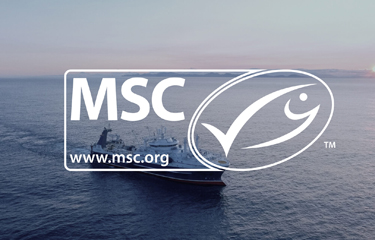Make Stewardship Count and On The Hook have released reports criticizing the Marine Stewardship Council (MSC) and renewing their calls for MSC to make reforms to its standard.
The newest report, released by On The Hook on 14 June, comes as the culmination of a year-long external review it conducted of MSC’s standard and its operations. According to On The Hook, the review was intiated after it had made repeated calls for the MSC to perform its own holistic independent review – a call the organization said the MSC declined to follow up on.
According to On The Hook, the MSC certifies harmful fishing practices, and is failing to keep up with the pace of change required to deliver sustainable seafood to consumers.
“A key concern is that MSC is positioned as the height of sustainability but, in reality, the MSC system is lax and sets a fairly low bar for sustainability,” On The Hook Campaign Member Charles Redfern said.
Redfern said MSC serves as a gatekeeper on sustainability issues because it “dominated the narrative” and “does not allow space for alternatives to flourish.”
On The Hook’s report urgently called on the MSC to stop certification of fisheries targeting unrecovered stocks; remove certification of fisheries that demonstrate a significant level of threat to endangered, threatened, and protected species; remove financial conflicts of interest from the certification process; prohibit the use of fish-aggregating devices from certified fisheries; and prohibit dredging and trawling in biodiversity and carbon-sensitive areas.
It also called the MSC to make medium-term improvements such as an objective, external review of its business model, broadening the diversity of the MSC boards, increased vessel monitoring requirements, and enforcing reporting on certified fisheries’ greenhouse gas emissions, among other requests.
Long-term, On The Hook said, the MSC should add additional crew standards and implement climate change considerations within the standard.
“The MSC’s eco-labeling scheme could and should be a force for good. However, its bar for certification is set far too low for it to drive sustainability improvements or for it to reliably indicate sustainability to seafood buyers and consumers,” Blue Marine Foundation Co-Founder and On The Hook Member Charles Clover said. “The MSC’s own review processes are not only far too slow but also focus only on the fisheries standard itself.”
The On The Hook report comes in the wake of a separate report released by Make Stewardship Count report in May, also claiming the MSC failed to address some critical issues in its latest standard review.
Make Stewardship Count was openly critical of the new MSC standards in 2022, when the organization was still going through its draft process. Since that time the MSC has released its final standard, and according to Make Stewardship Count the final standards failed to address many of its concerns.
“The recent fisheries standard review process provided a historic opportunity for the MSC to drive real changes in global fishery management throughout the next decade, especially with regard to requirements for increased monitoring and compliance,” Ecology Action Centre Senior Marine Program Coordinator Shannon Arnold said. “Like many parts of the final standard, the MSC’s intentions were on the right path. On the surface the scoring metrics are stronger, however, the devil is in the details and those details ended up including loopholes, opt-outs, and weak definitions that will undermine the certification intentions.”
Make Stewardship Count also criticized the MSC’s standards regarding endangered, threatened, and protected species; and the MSC’s lack of mandatory monitoring for “fins naturally attached” requirements intended to address shark finning.
The latest criticism are far from the first time outside organizations have criticized the MSC for an alleged lack of rigorous standards. On The Hook has called for stricter standards multiple times. In 2022, as the MSC was working on its new fisheries standard, MSC Fisheries Standard Director Ernesto Jardim said the difficulty for any sustainability standard is ensuring it strikes a balance between sustainability and achievability.
“The work we did for the last four years – mostly concentrated on the last few years – a lot of that work was trying to find that balance, trying to find that sweet spot,” Jardim said at the time. “You can put the level of performance anywhere, from zero to wherever, and as soon as you put it too high, you lose the fishery.”
Losing fisheries, he said, means that the MSC won’t have any leverage to make changes.
Currently, MSC certifies 530 fisheries representing 15 percent of global wild marine catch.
Photo courtesy of the Marine Stewardship Council







